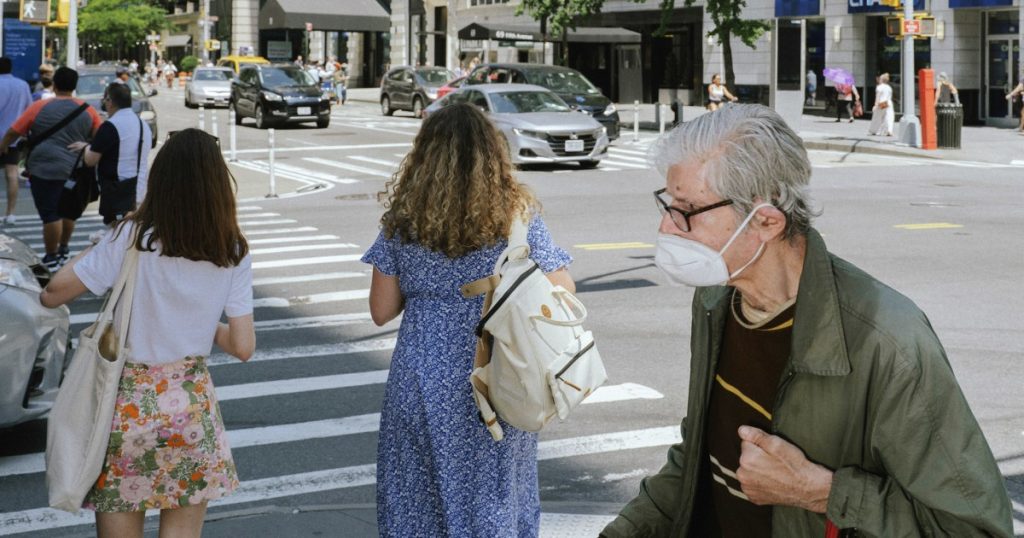Respiratory virus season in the United States may be coming to an end, but a new group of COVID-19 variants known as FLiRT, including the dominant variant KP.2, are circulating. These variants have additional mutations that set them apart from previous strains and seem to have an advantage over other variants. KP.2 has quickly become the most common variant in the U.S., accounting for one in four infections nationwide. Concerns have been raised about the potential for a summer wave of infections due to these new variants.
Experts believe that the FLiRT variants, KP.2 and KP.1.1, are more transmissible than previous strains, with mutations that may allow them to evade some pre-existing immunity. While current vaccines and immunity from prior infection may provide some protection, it is likely to be partial due to the mutated nature of KP.2. Low vaccination rates and waning immunity among the population may create a vulnerable environment for the FLiRT variants to spread. It is still early days, and more data is needed to understand the full impact of these new variants.
There is uncertainty about whether the FLiRT variants will lead to a summer surge of COVID-19 cases. While test positivity rates have been declining, indicating lower levels of virus transmission, COVID-19 continues to circulate year-round at varying levels. Past summer waves of COVID-19 have been smaller than winter surges, and experts are cautiously optimistic that any potential wave caused by the FLiRT variants may not lead to a large increase in cases. The seasonality of COVID-19 remains a topic of ongoing research.
The symptoms of the FLiRT variants, including KP.2, are thought to be similar to those caused by previous strains, such as sore throat, cough, fatigue, and fever. While it is too early to determine whether these variants cause distinct symptoms, they appear to be associated with milder infections. Early laboratory studies suggest that current vaccines may still offer some protection against KP.2, although an updated vaccine targeting the new variants may be necessary in the future. Vaccination remains a critical tool in preventing severe disease and hospitalization.
To protect against the new FLiRT variants, individuals are advised to stay up to date with COVID-19 vaccines, test for COVID-19 if experiencing symptoms, and practice good hand hygiene. Improved ventilation, wearing masks in crowded indoor spaces, social distancing, and staying home when sick are additional recommended prevention strategies. Antiviral medications, such as Paxlovid, continue to be effective against COVID-19, and individuals are encouraged to follow public health guidelines to reduce the spread of the virus. While the emergence of new variants raises concerns, ongoing research and adherence to preventive measures can help mitigate the impact of these changes on public health.













